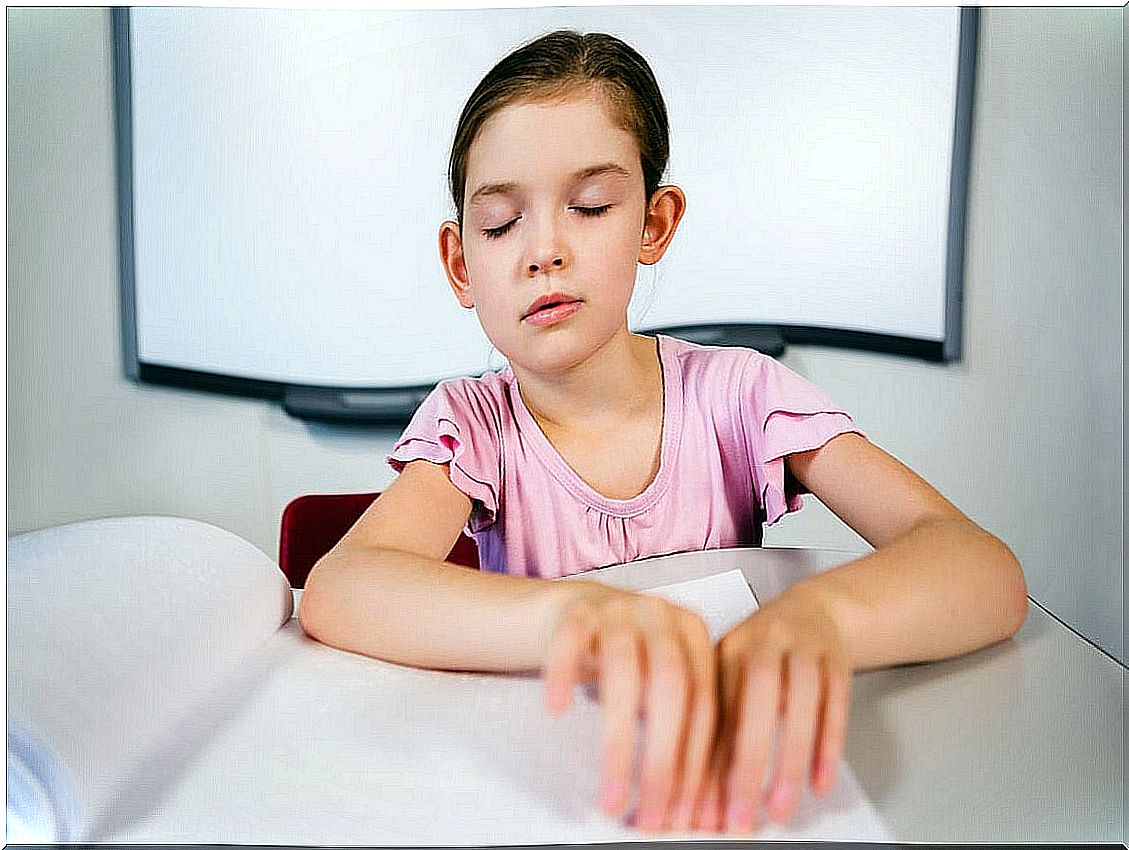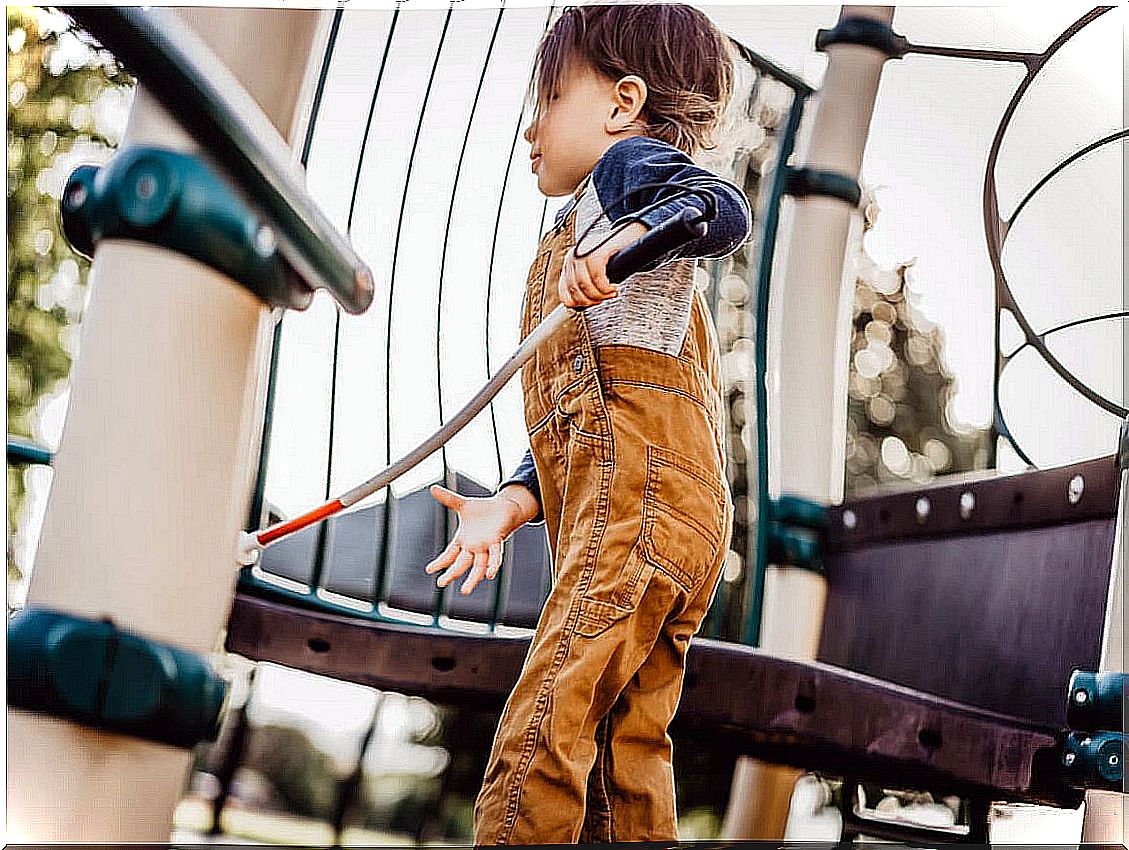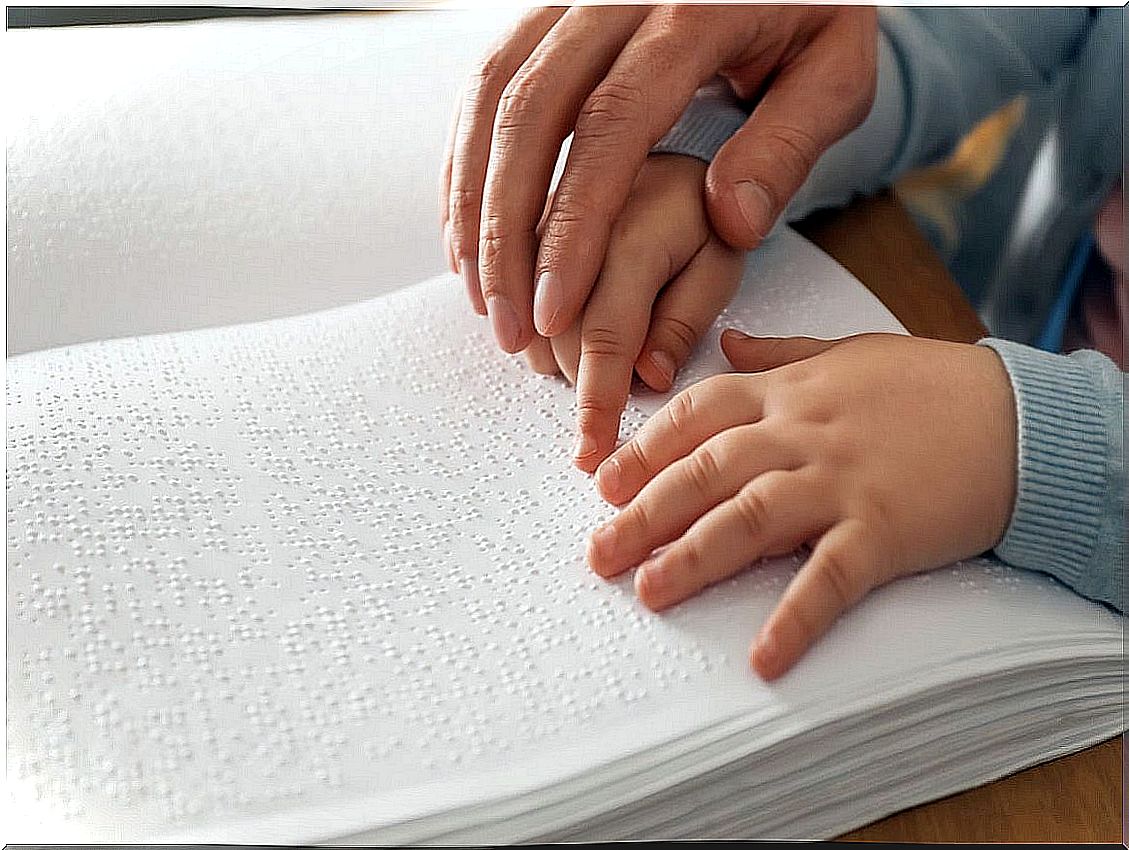Tips For Caring For A Blind Child
Making a blind child feel safe implies that parents gain experience and establish fluid communication with them. Discover in this article tips that will help you with its care.

Caring for a blind child can be challenging if it is your first experience with a family member who has this condition. Their physical world must be completed by parents, who need to learn to explore sensitive capacities that sight has not allowed them before.
The blind child has four senses to make discriminations that will make him understand his surroundings. The role of parents will be focused on providing stimuli that are as diverse as necessary to learn to interact autonomously in society.
You will surely have many questions about the causes of visual impairment and you will be thinking how you can support it in its development. There are orientations carried out by specialists and others from the experience of the parents, whose results have been satisfactory.
Causes of childhood blindness
The causes of childhood blindness are linked to hereditary or congenital factors, mostly, such as the following:
- Retinal dystrophies: the most common being retinitis pigmentosa.
- Congenital cataract.
- Eye malformations.
- Degenerative myopia.
- Hereditary optic atrophy and neuropathies.
- Congenital glaucoma.
- Systemic diseases: like diabetes.
It can also be due to severe eye trauma resulting in retinal detachment or the presence of a tumor. This reality changes, according to studies of countries with less developed health systems, in which perinatal pathologies occupy a significant percentage.
These include retinopathy of prematurity (ROP), infection of the central nervous system, and hypoxia. As well as intrauterine infections, such as rubella, toxoplasmosis, and cytomegalovirus.
According to the World Health Organization (WHO), the causes of poor vision in children are different according to the country of residence. Congenital cataracts being the main origin in low-income countries and retinopathy of prematurity (ROP) in high-income countries.

What can parents do to improve the care of a blind child?
The baby is a human being who needs care and an environment that allows him to reach the fullness of his development. That is why the first experiences are so decisive, since they configure your physiological system and your brain. In the case of having a blind child, the demands are even greater.
For parents, it is essential to generate security schemes in the child. Only confidence will allow you to cope with stressful situations exacerbated by lack of vision. And this is achieved if they find appropriate stimuli to maintain calm or homeostatic balance.
The blind child looks with his ear, tends to remain still and explores with his hands, differently from a child who sees. Parents must identify these behaviors and respond to their needs. In addition to achieving reciprocity, since in reflection or communication the baby will build his own personality.
Tips for caring for and educating a blind child
Like any baby, the blind child needs to know that his parents understand him, that they receive his messages and that there is communication. It is in the dynamics of encounters and disagreements that your consciousness will develop. Here are some tips on what you can do to care for and educate him.
Play body games
Body games and caresses allow the child to establish a pleasant relationship with his body. This will have a positive impact on the development of their motor skills, which increases with knowledge, exploration of space and encouragement.
Do early stimulation exercises
Children who see move towards objects, but the blind child must surround himself with objects that sound or feel differently. Your body needs to feel that you are not alone or in an empty space.
Their environment should contemplate sound and physical stimuli and preferably rectangular objects. With them you can stimulate psychomotor activities that help you integrate the space.
Focus on the senses of touch and hearing
The blind child has his whole body represented in the sense of touch to know and understand his environment. It is what is defined as haptic recognition of the world , different from the optical one, in which the sense of sight prevails.
The textures, the temperature, the rough, the rough, the size, in short, the variety of the objects, will be known through your hands. And to this sensory richness are added the receptors of movement in the muscles, tendons and joints.
Social interaction
The blind child must feel safe and accompanied. For this, their movements must be facilitated, which will translate for their senses, especially hearing and touch, the characteristics of reality.
Your body must gain awareness of space, interacting efficiently with objects and other people. This will improve their posture, muscle tone, and decrease common bodily behaviors in blind people who did not receive adequate stimulation.
Hoover’s technique and the braille system
The blind child needs to integrate what surrounds him to his perceptual system, so he needs senses that approximate it. If things are far away, you should be able to touch them at a distance. The Hoover technique or the use of the cane works as a safe extension of the body.
Braille, in turn, will be an extension of memory and imagination. It gives the blind the opportunity to know the world from ideas, signs and words.

Recognize and value the blind child
Valuing each achievement and recognizing progress in development is key in building self-esteem. This is a feeling that is needed not only by the child, but by the parents as well. They must overcome the feeling of guilt and accompany the various stages of development with joy and openness.
Promote their autonomy
At first you must help him to walk; then you must little by little learn to let him do things for himself. Overprotection inhibits your personal development.
If you move autonomously, you will be able to become increasingly aware of the limits imposed by your situation. At the same time, knowing that you have your own means will make you more adept at pressures from the outside world.
Caring for a blind child to provide security
Among the care of a blind child it is important to ensure that the child builds a secure personality. This will allow you to grow autonomously and responsibly. For this, it is essential that you can organize the information about your surroundings and give it meaning.
You must allow and encourage your blind child to explore their environment, because the synthetic image of the world that is obtained with sight will be impeded. You have to do it by expanding your other senses, with joy, pleasure, and confidence. Also, sure that he can count on you.








